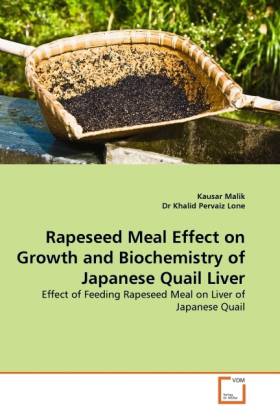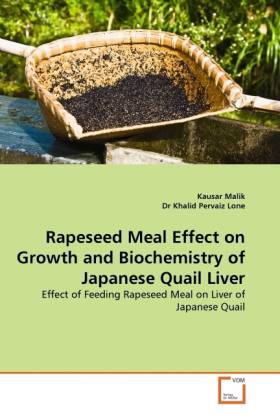
- Afhalen na 1 uur in een winkel met voorraad
- Gratis thuislevering in België vanaf € 30
- Ruim aanbod met 7 miljoen producten
- Afhalen na 1 uur in een winkel met voorraad
- Gratis thuislevering in België vanaf € 30
- Ruim aanbod met 7 miljoen producten
Zoeken
Rapeseed Meal Effect on Growth and Biochemistry of Japanese Quail Liver
Effect of Feeding Rapeseed Meal on Liver of Japanese Quail
Kausar Malik, Khalid Pervaiz Lone
Paperback | Engels
€ 48,45
+ 96 punten
Omschrijving
A detailed study was undertaken in order to determine the safe dose of mustard seed meal in the diet for Japanese quails which can be used at the production level without having deleterious effects on the growth of this bird. For this purpose, some 1500 birds were fed different levels of mustard seed meal in isocaloric and isonitrogenous diets. The results of feeding of these diets for 30 days show that there are no toxic effects on the growth of birds. In fact the birds on the experimental rations were either comparable or heavier than the control except 5% group. Different biochemical and physiological studies were performed on the liver show that glucosinolates present in the mustard did not have the drastic effects which have been reported in the literature for mammals and other domestic birds. The changes reported herein were seemed to have more of the manifestation of the age rather than the effect of glucosinolates.
Specificaties
Betrokkenen
- Auteur(s):
- Uitgeverij:
Inhoud
- Aantal bladzijden:
- 60
- Taal:
- Engels
Eigenschappen
- Productcode (EAN):
- 9783639240269
- Verschijningsdatum:
- 29/07/2011
- Uitvoering:
- Paperback
- Formaat:
- Trade paperback (VS)
- Afmetingen:
- 152 mm x 229 mm
- Gewicht:
- 99 g

Alleen bij Standaard Boekhandel
+ 96 punten op je klantenkaart van Standaard Boekhandel
Beoordelingen
We publiceren alleen reviews die voldoen aan de voorwaarden voor reviews. Bekijk onze voorwaarden voor reviews.











